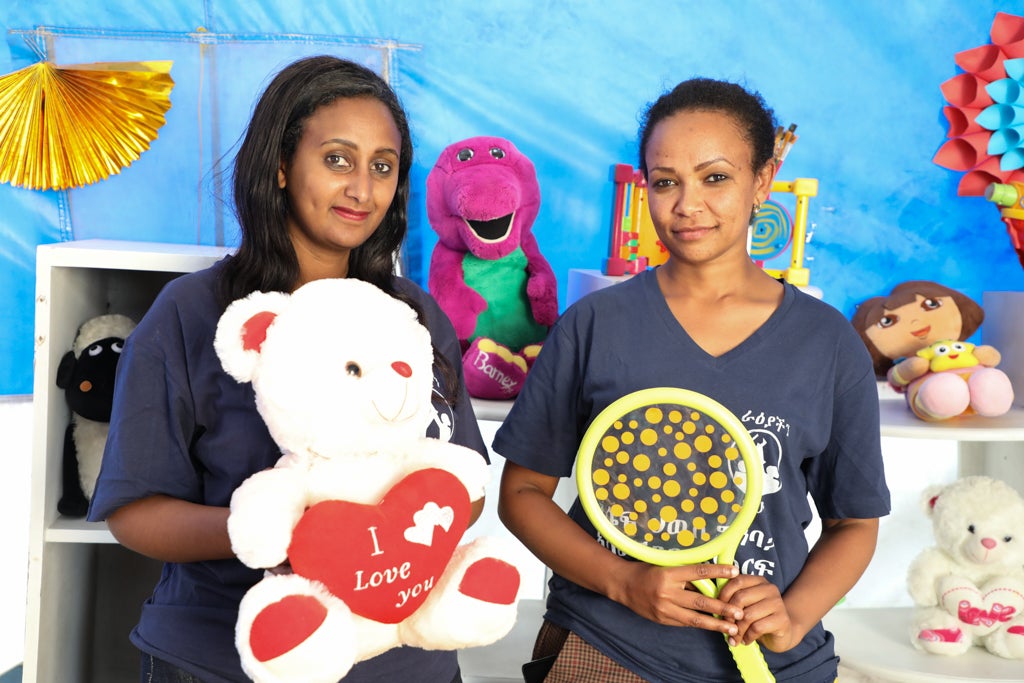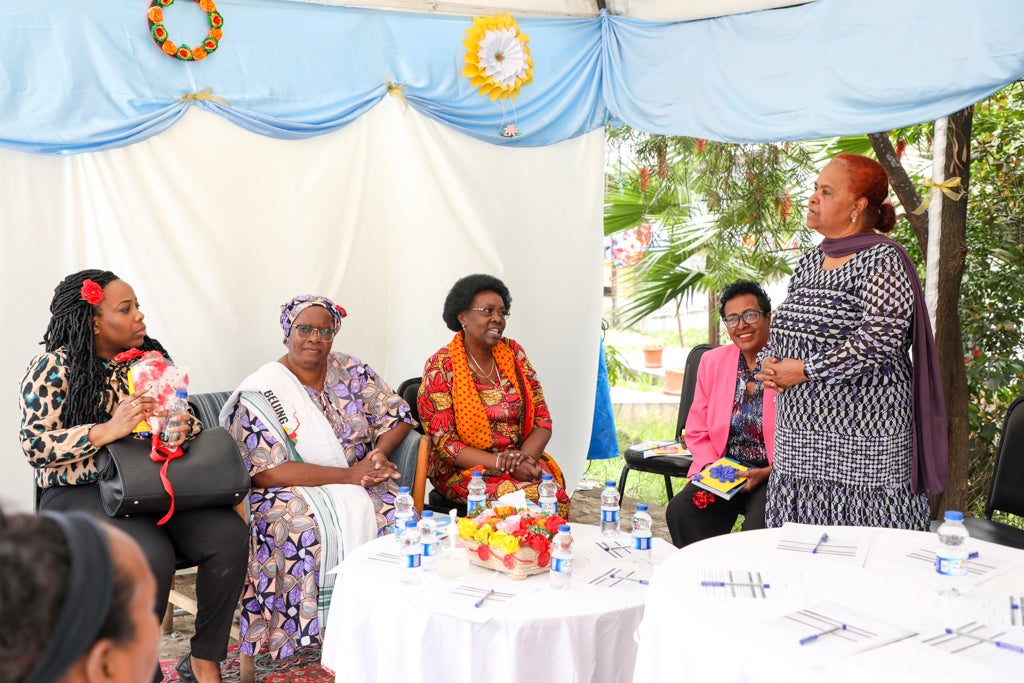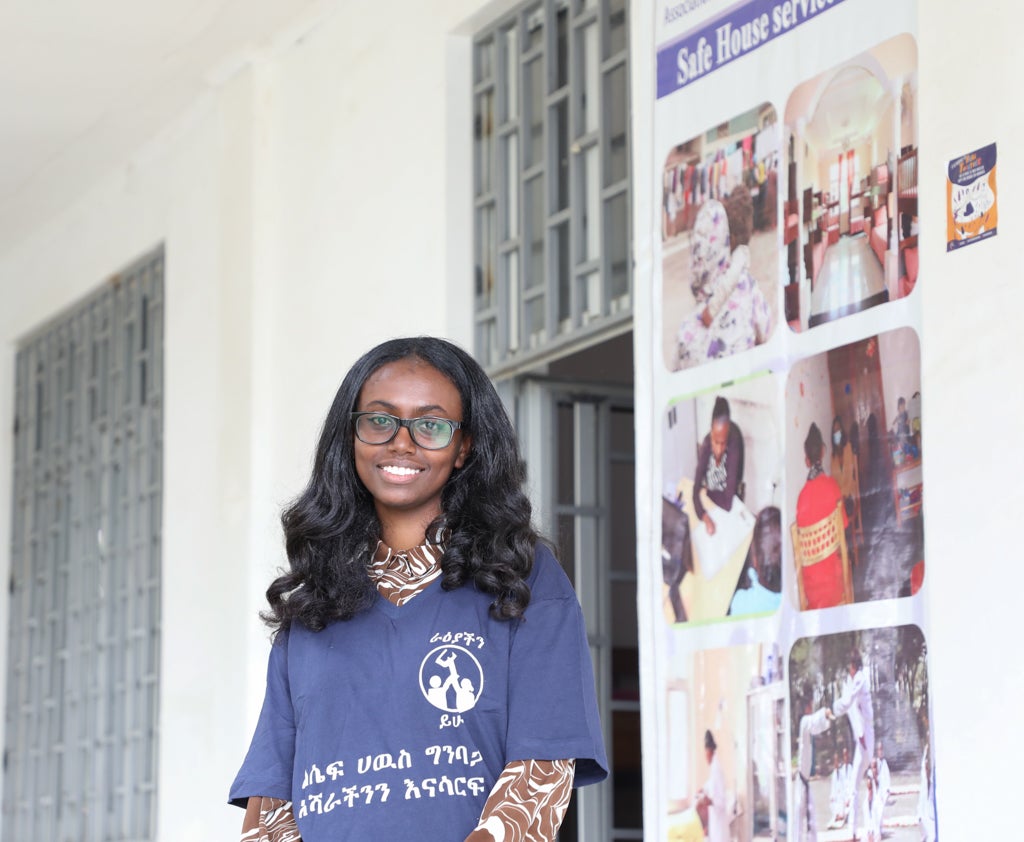Addressing the huge Demand for Services by Survivors of Violence Against Women and Girls in Ethiopia
Date:

In Ethiopia, violence against women and girls continues to be a major challenge and a threat to women’s empowerment. Women and girls face physical, psychological and sexual abuse that undermines their health and ability to earn livelihoods, disrupts social systems and relationships, and, in the case of girls, robs them of their childhoods and education.
According to the 2016 Ethiopian Demographic and Health Survey (EDHS) report, nearly a quarter (23 per cent) of women have experienced physical violence at some point in their lives while 10 per cent of women have experienced sexual violence.
Mieraf Debrework is a trained gender-based violence (GBV) counsellor who has been working at the Association for Women’s Sanctuary and Development (AWSAD), an Ethiopian Resident Charity Association, for the past six years. AWSAD, one of UN Women’s implementing partners, was established to advance women's social and economic development and provide support for women and girls who face physical and psychological violence and operates five safe houses in different regions of Ethiopia. Mieraf is stationed at a shelter in Addis Ababa. A new shelter is currently under construction to address the issue of insufficient space in the previous setting AWSAD was renting in the middle of the city. The new construction will also be more child friendly and have a space for training, Mieraf hopes.
Mieraf, who received “specialized trauma-focused counselling technique” training, supported by UN Women Ethiopia, says that the training to support traumatized survivors, such as conflict-related sexual violence (CRSV) survivors, was an addition to her skills in supporting GBV survivors. She was deployed to a temporary shelter opened with the support of UN Women Ethiopia, through the UN Central Emergency Relief Fund (CERF), in Woldia and Kobo towns of the Amhara region, in the northern part of Ethiopia during the recent conflict.
UN Women, in partnership with other UN agencies, has been implementing the UN Joint Global Essential Services Package for Women and Girls Subject to Violence, which seeks to improve the quality of, and access to, multi-sectoral essential services for women and girls who have experienced violence. Part of this intervention is the provision of comprehensive services to survivors of violence including safe accommodation, individual and group counselling, skills training, economic empowerment and opportunities, rehabilitation and reintegration services. UN women is currently supporting three of AWSAD’s shelters in Addis Ababa, Adama and Kombolcha of Oromia and Amhara regions respectively.
Ribka Getachew, another counsellor at AWSAD agrees that the new shelter being built on the 7000m2 of plot that the organization has managed to secure in the outskirts of Addis Ababa, will address space challenges, and provide separate counselling rooms for children and adults. It will also make it more accessible to persons with disabilities. The shelter will also accommodate more survivors at one time. The current space accommodates 50 survivors.
For both Mieraf and Ribka, seeing the change in survivors after accessing the services at the shelters is what has kept them going despite the challenges.
There is a huge demand for comprehensive services in Ethiopia, such as those provided in the shelters, due to the ongoing instability and conflict. There are more than 20 shelters in the country mostly run by civil society organizations, which depend solely on external funding. The establishment of the Ethiopian Network of Women’s Shelters (ENWS), also coordinated and supported by UN Women, is a milestone to enhance the standardization of services in the country.
Maria Munir, Executive Director of AWSAD and Chairperson of the ENWS, notes that access to land for the member organizations that provide safe spaces and comprehensive services for survivors has been a long-standing challenge that limits their reach and capacity to accommodate more survivors, “the issue of VAWG, and essential services provision needs high priority given the magnitude of the situation in the country” says Maria. She also notes that there is a need to strategically plan for sustainability to ensure there is continuity in service provision.

According to Ribka, the way response for Gender Based Violence is being handled in Ethiopia, especially how VAWG cases are handled in the criminal justice system, is another challenge when it comes to providing survivor centered essential services. As a former staff of a court, she knows firsthand the challenges involved in locating survivors and getting them to testify in order to sentence the perpetrators.
Haimanot Kassahun, a legal officer at AWSAD, reiterated the same challenge adding, “In most cases, survivors are not aware of their rights and have limited awareness about the legal system. which results in survivors failing to properly testify and make their cases in front of the court” That poses an issue with rape cases as survivors are also witnesses for the cases and sentencing perpetrators might rely on their testimonies.”

Haimanot explains that court simulations are conducted by AWSAD to address this gap, saying “It is encouraging to see cases where survivors housed at AWSAD are getting higher sentences, better than other cases where we are not involved.”
UN Women Ethiopia country office will continue to support such initiatives as part of its Ending Violence Against Women and Girls Programme that upholds the “leave no one behind” agenda and improves the availability and accessibility of quality services for these women and girls.